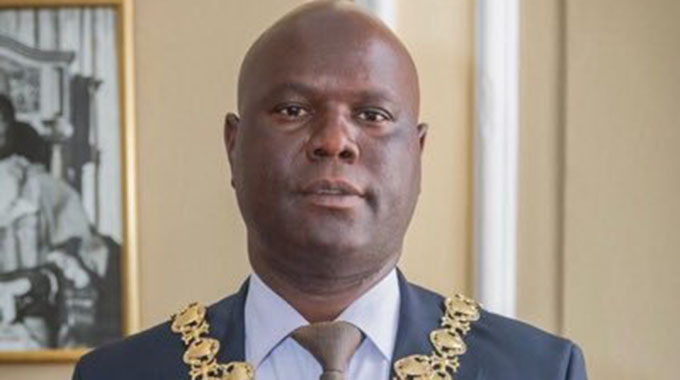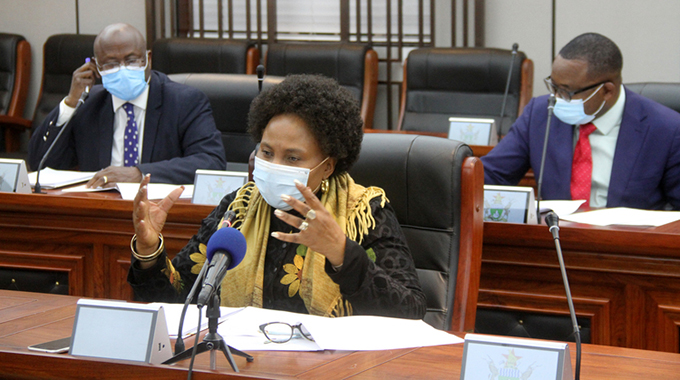Editorial Comment: Councillors have failed, time for recourse

Developments at the Harare City Council in recent weeks suggest a leadership that is conflicted and hamstrung and thus incapable of effectively delivering service to ratepayers.
Harare Mayor Councillor Herbert Gomba and several top management officials at the council have been implicated in conniving and selling land, in a process said to prejudice council.
Other top officials implicated include the director of housing, acting HR director, principal housing director, acting chief clerical officer, and police officers who were rewarded with stands in Westlea suburb in exchange for turning a blind eye to the corrupt practices.
Among the allegations against them are that 150 stands were created in Kuwadzana from open spaces. These were subsequently sold for personal gain.
There are concerns also raised in connection with stands on land that was Mount Pleasant Golf Course, Sherwood Golf Course, greenways and wetlands throughout the capital.
So far the total prejudice to council is estimated at US$1 141 997.
As a result, residents are demanding appointment of a commission arguing that there is deep-rooted corruption at Harare City Council and that city fathers have failed residents.
Serious allegations of corruption are not the preserve of the councillors at the City of Harare. Late last year, Government established a team to investigate councillors and officials in Bulawayo.
Discontent among residents/ratepayers is a barometer of how far councils have fallen far short of residents’ expectations.
So even if a commission is appointed, it needs to be very clear, from outset, that ratepayers expect its core mandate to be service delivery, consistently.
An example of the developments that have raised the ire of residents in Harare is best demonstrated by what is currently taking place in Rugare high-density suburb.
In 2001 council demolished a mosque on the pretext that it had been constructed on land reserved as “a breathing space” — never mind the fact that for construction to reach completion stage, it is approved by council officials who visit sites of construction periodically, approving the various stages of a building.
So far 72 stands have been pegged on the site of the demolished mosque in Rugare. Could the destruction have been a deliberate act of Islamophobia?
This has led residents to question the motive and consequently have approached Government for intervention.
Earlier this year, it needed a High Court order to stop Harare City Council from transforming an area in Southerton used as a public park into 29 low-density stands, with Mayor Gomba incomprehensibly describing council’s decision as “progressive”.
The propensity and appetite for parcelling out land by this council is unparalleled in the history of this country.
A stunning feature of Harare currently is that council has turned available open spaces into car sales lots, car wash entities, nursery stands, tyre sales sites, and garden furniture selling sites, cement sales and fertiliser sales sites.
Ordinarily, there would be nothing wrong with this approach because it enhances security in the affected areas. However, residents do not understand where the revenue so generated is being utilised because it does not appear to impact service delivery and the welfare of communities.
The level of neglect by Harare City councillors is stunning. Councillors’ pre-occupation appears to be a determined resolve to line their pockets, and as fast as they can and by all means necessary.
In their view the people who entrusted them the mandate to govern the city in the best interests of ratepayers appear inconsequential.
The neglect is also best exemplified by the recently reported outbreak of typhoid in Sunningdale. Erratic refuse collection and poor water supplies could, in part, be among causes of a number of health conditions being recorded in the capital.
Dangerous potholes, unattended sewer bursts, particularly in the high-density suburbs, as well as the perennial water bursts rank among council’s spectacular failures.
It is easily possible to drive around the capital and encounter scores of water bursts that are several days or weeks old.
It appears the singular determination by councillors, once they get into office is to quickly throw away election pledges and rush for the feeding trough, while riding roughshod over the people.
There must be an avenue for seeking recourse in the face of such blatant betrayal by people entrusted with the power to always act in the best interests of the residents of the city.
Failures by the city fathers is evident in the state of roads throughout the capital, the surrender of refuse collection to private enterprises, and abandonment of commitment to provision of clean drinking water for residents, which void has been filled by private players.
The failure by the Harare City Council or the appetite for engaging in dodgy activities, provides a compelling justification for the Ministry of Local Government and Public Works to appoint a commission to run the affairs of the capital.
The said commission must have a specific duration, an unambiguous brief, with stated outcomes and timelines for completion.









Comments